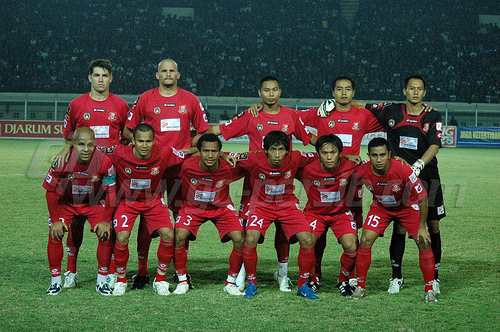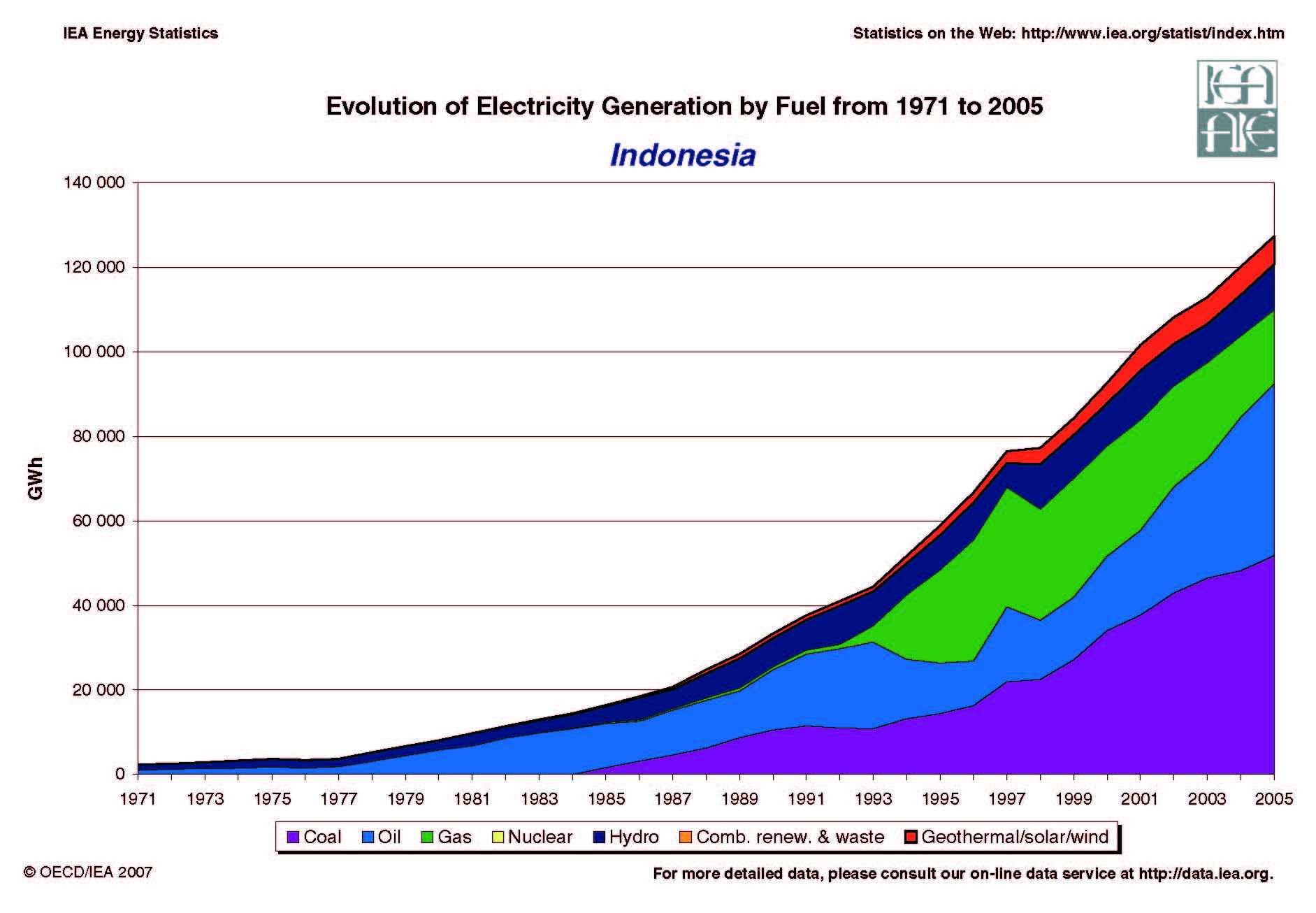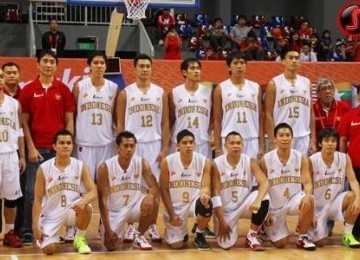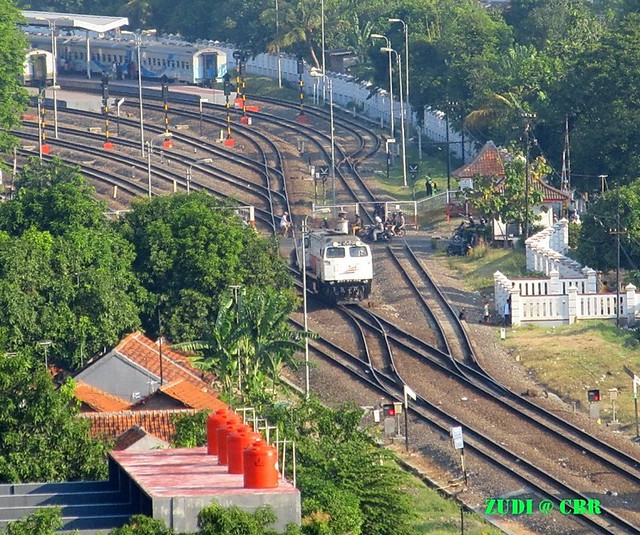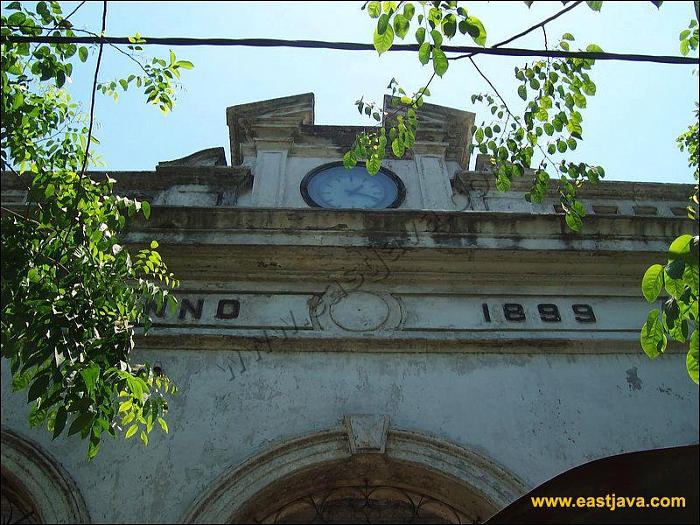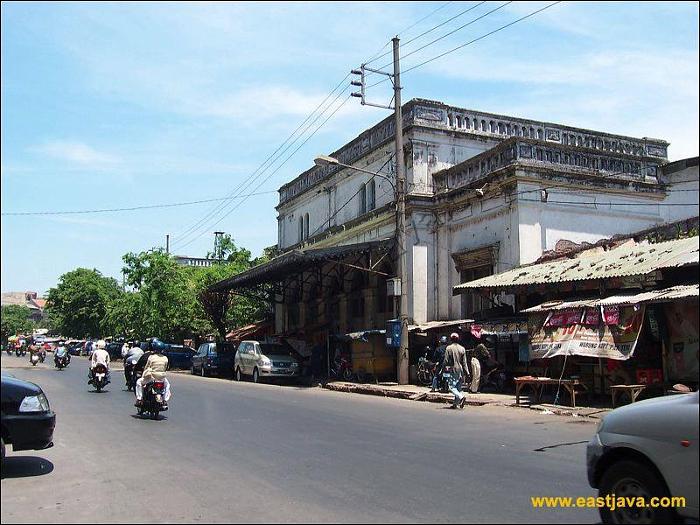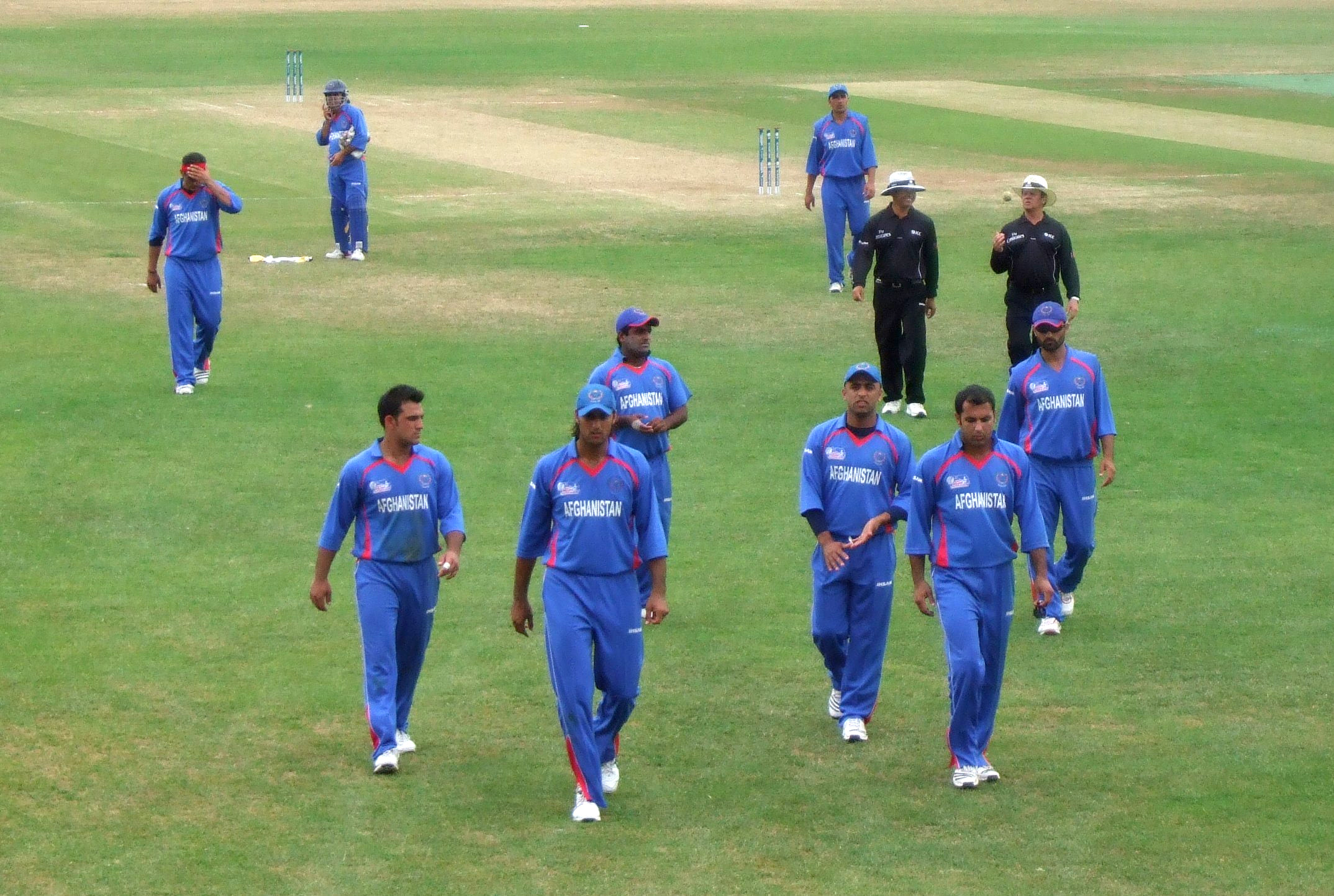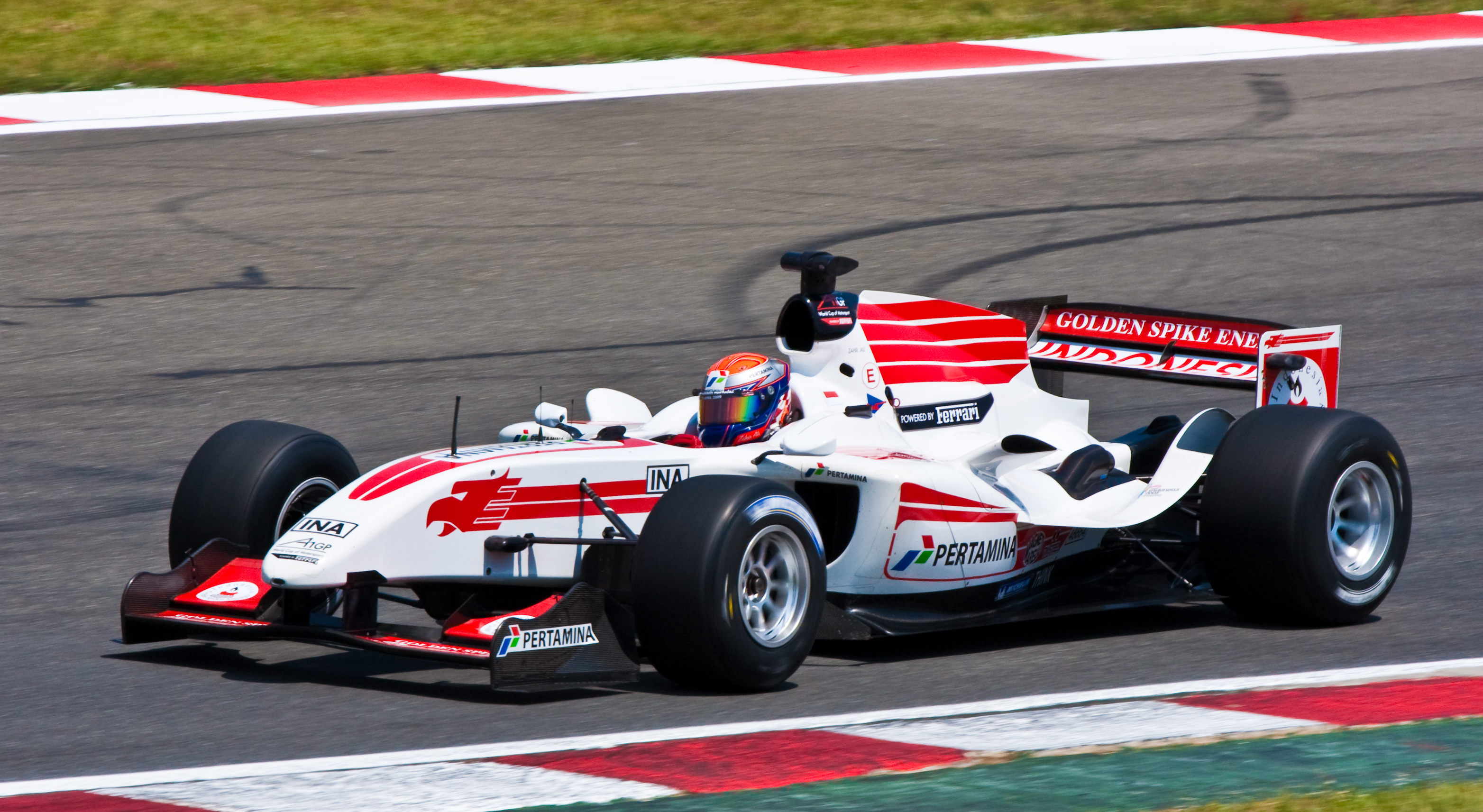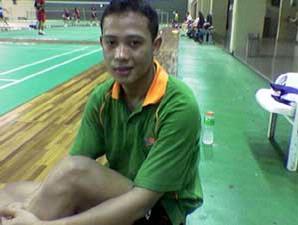Indonesia national football team
The
Indonesia national football team represents Indonesia in competitive international association football. The team is controlled by the Football Association of Indonesia and is a member of the Asian Football Confederation. Prior to independence in 1945, the team competed as the Dutch East Indies national football team. Under this name, Indonesia was the 1st Asian team to participate in the FIFA World Cup, at which time the team qualified for the 1938 FIFA World Cup tournament in France. The Indonesian team was eliminated by the Hungarian national football team in the 1st round and has not qualified for the World Cup since this defeat.

The team's only Olympic appearance was in 1956 in Melbourne, Australia, where they held the Soviet Union national football team, the eventual gold medalists, to a nil-all draw, but lost 0â€"4 in the replay match. The Indonesian team qualified for the AFC Asian Cup on four occasions, but have never progressed beyond the group stage. Indonesia's best performance in Asia was at the 1958 Asian Games in Tokyo, when it achieved the bronze medal. The team has reached the ASEAN Football Championship final on four occasions, but has never won the tournament.
The early matches, involving sides from the Dutch East Indies, were organised by the Nederlandsch Indische Voetbal Bond, or its successor, the Nederlandsch Indische Voetbal Unie (NIVU). The matches that were run prior to the nation's independence in 1945 aren't recognised by the PSSI (the Football Association of Indonesia).
The 1st recorded football match that involved a team from the Dutch East Indies was a contest against a Singaporean national football team on 28 March 1921. The match was played in Batavia and the Indonesian team won with a final score of 1â€"0. This was followed by matches against an Australian XI in August 1928 and a team from Shanghai two years later (4â€"4 draw).
In 1934, a team from Java represented the Dutch East Indies in the Far Eastern Games that was played in Manila, Philippines. Despite defeating the Japanese national football team, 7â€"1, in its 1st match, the next two matches ended in defeats resulting in a second-place tournament finish for the Javan team. Although not recognised by PSSI, these matches are treated by the World Football Elo ratings as the 1st matches involving the Indonesian national side.
The Dutch East Indies were the 1st Asian team to participate in the FIFA World Cup, when the team qualified for the 1938 tournament after its opponent, Japan, withdrew from the qualification heats. The 6â€"0 loss to eventual finalists, the Hungarian national football team, in the 1st round of the tournament in Reims, France, remains the nation's only appearance in the World Cup.
After the Second World War, followed by the Indonesian National Revolution, the highlight of the football history of independent Indonesia occurred at the 1956 Olympics in Melbourne, Australia. The team forced the Soviet Union national football team to a nil-all draw, but lost 0â€"4 in the replay match, The Soviet Union later was successful in attaining the gold medal. This remains the country's only appearance in the Olympics.
In 1958, the team tasted its 1st World Cup action as Indonesia in the qualifying rounds. The team defeated China in the 1st round, but subsequently refused to play its next opponents, the Israel national football team, due to political issues. The team subsequently suffered a ban from the FIFA World Cup that lasted from 1958 to 1970 due to an unfavorable internal and external political situation.
Shortly after, the Indonesian team won the bronze medal at the 1958 Asian Games in Tokyo, Japan. The Indonesians beat the Indian national football team, 4â€"1, in the third-place match. The team also drew, 2â€"2, with the East German national football team in a friendly match.
During this period, the Indonesian team lifted the Merdeka Tournament trophy in victory in Kuala Lumpur, Malaysia on three occasions. The Indonesians were also champions of the 1968 King's Cup in Bangkok, Thailand.
Indonesia returned to World Cup qualification competition in 1974; however, the team was eliminated in the 1st round, with only one win, from six matches, against the New Zealand national football team. During the 1978 qualification heats, the Indonesian team only won a single match, out of four matches, against host team, Singapore. Four years later, in 1982, the Indonesians recorded two victories in qualifying matches, against the Chinese Taipei national football team and the Australian national football team.
The 1986 FIFA World Cup qualification round saw a better performance for Indonesia, as the nation's team advanced from the 1st round with four wins, one draw and one loss, eventually finishing at the top of its group. However, the South Korean national football team emerged victorious over the Indonesians in the 2nd round.
The team also reached the semi-final of the 1986 Asian Games after beating the United Arab Emirates national football team in the quarter final; but the Indonesians then lost to hosts, South Korea. The Indonesian team also lost to the Kuwait national football team, 5â€"0, in a third-place match.
A milestone during this era was the gold medal victory at the Southeast Asian Games in both 1987 and 1991. In 1987, the Indonesians beat the Malaysian national football team, 1â€"0; while in 1991, the team beat the Thailand national football team, 4â€"3, in a penalty shoot-out.
In the 1990 qualification, the Indonesian team lost in the 1st round, with only one win against Hong Kong, three draws and two defeats. The team also only managed a single victory against the Vietnamese national football team in the 1994 qualification round.
Indonesia's 1st appearance in the AFC Asian Cup was against the United Arab Emirates in the 1996 AFC Asian Cup. During the tournament, Indonesia only scored a single point from a 2â€"2 draw against Kuwait in the 1st round. In that match, striker Widodo C Putro, gained fame for scoring a renowned goal with a bicycle kick. The team's 2nd appearance in the Asian Cup was in Lebanon in the 2000 AFC Asian Cup; again, the Indonesian team gained only one point from three games, and, again, from a match against Kuwait that finished without a score from either side.
Indonesia eventually established a better record in the 2004 AFC Asian Cup, beating the Qatar national football team, 2â€"1, to record the team's 1st ever victory in the history of the tournament. Nevertheless, the win wasn't enough for the Indonesian team to qualify for the 2nd round.
The team's participation in 2007 was especially notable, as Indonesia acted as one of four co-hosts of the tournament. The national team proceeded to defeat the Bahrain national football team, 2â€"1, in the 1st match; however, the next two ties proved tough, as the Indonesians faced Asian giants, Saudi Arabia, as well as South Korea. Despite decent performances, both ties ended in narrow 1â€"2 and 0â€"1 defeats â€" thus sealing the Indonesian team's fate as third-place achievers in the group.
In the 1998 World Cup qualification matches, the Indonesian team decisively defeated Cambodia, 8â€"0, in the opening match. The team only lost a single match when visiting Uzbekistan, but drawing four other matches meant that the team failed to advance any further.
Indonesia recorded a better performance in the 2002 qualification round, beating Maldives and Cambodia, in home and away matches, respectively. The team shared the same points and the group leader position with China, but lost both home and away matches against China, leading to the elimination of the Indonesian team. China eventually advanced to the 2002 World Cup.
Four years later the Indonesians finished 3rd in the 2nd round of the 2006 World Cup qualification group, with two wins, one draw and three losses. Group winner, Saudi Arabia, later advanced to the 2006 World Cup.
Also during this era, Indonesia achieved a decent record in the ASEAN Football Championship, reaching the final on four occasions (2000, 2002, 2004 and 2010), albeit never managing to lift the trophy victoriously. The team's claim of regional titles came in the Southeast Asian Games of 1987 and 1991.
It was perceived that, immediately following the historic 2004 Asian Cup campaign, Indonesia might be on the verge of a more prominent stature in the ASEAN football scene. Under the guidance of former Aston Villa and England striker, Peter Withe, the Southeast Asian outfit appeared to be capable of continuing its success in terms of football development and FIFA World Rankings. However, the Indonesians failed on the group stage of the ASEAN Football Championship, and, on 18 January 2007, Withe was immediately sacked; he was replaced by Bulgarian, Ivan Venkov Kolev.
After the Withe era, the inability to fulfil the ASEAN target has been cited as the reason for Indonesia's "revolving door" in terms of team managers. Over the course of two years, the Indonesia national team's manager changed from Kolev to local coach, Benny Dollo, who was in turn sacked in 2010. The head coach position was then held by Alfred Riedl, former national coach of Vietnam and Laos; however, Riedl failed to lift any cups during his time and in July 2011, he was replaced by Wim Rijsbergen.
Related Sites for Indonesia national football team
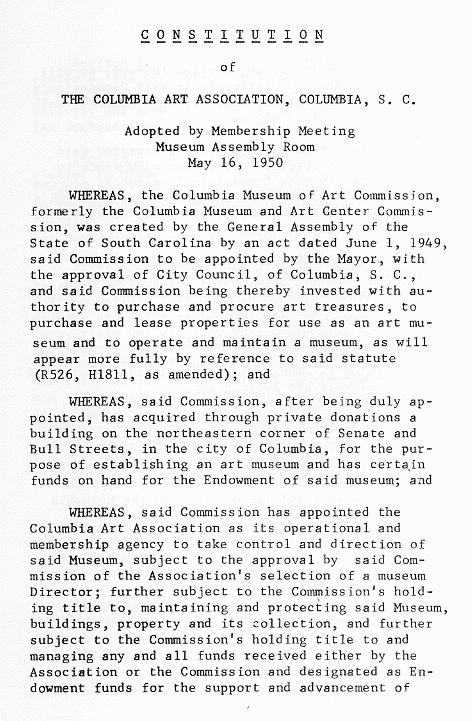 This committee was formally established immediately after the May 19 agreement. It had 14 members, with seven appointed by each government. It was chaired jointly by the RUSI justice minister Soepomo and the Indonesian Republic's prime minister Abdul Halim. Hatta and Abdul Halim had previously agreed that all the members of the RUSI House of Representatives as well as the republic's legislature would be members of the unicameral parliament, with other members to be appointed by the president. The committee eventually decided that in addition, the members of the RUSI senate and the Supreme Advisory Council of the Republic would also be members, resulting in a 236-member house. The committee also decided that Jakarta would be the capital of the state and that the nation would be divided into 10 provinces and two special regions.
This committee was formally established immediately after the May 19 agreement. It had 14 members, with seven appointed by each government. It was chaired jointly by the RUSI justice minister Soepomo and the Indonesian Republic's prime minister Abdul Halim. Hatta and Abdul Halim had previously agreed that all the members of the RUSI House of Representatives as well as the republic's legislature would be members of the unicameral parliament, with other members to be appointed by the president. The committee eventually decided that in addition, the members of the RUSI senate and the Supreme Advisory Council of the Republic would also be members, resulting in a 236-member house. The committee also decided that Jakarta would be the capital of the state and that the nation would be divided into 10 provinces and two special regions.



